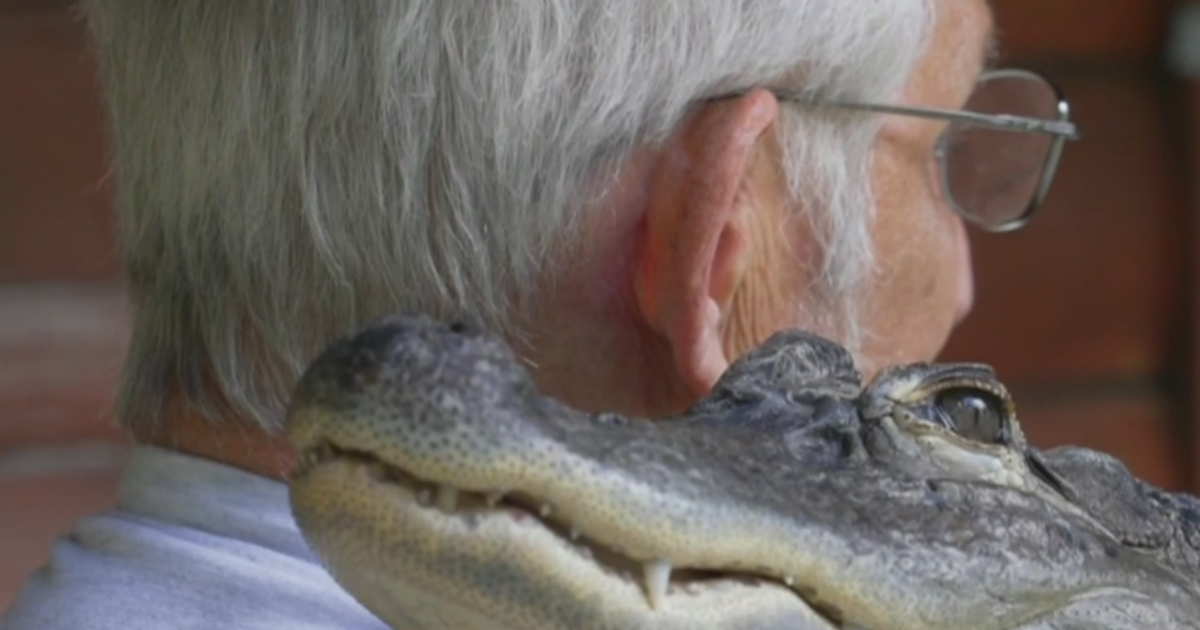A Phillies fan and his emotional support animal, an alligator named WallyGator, were denied entrance to watch Philadelphia host the Pittsburgh Pirates.
Social media posts showed the gator on a leash with a harness with his name on it outside the stadium Wednesday.
WallyGator is a working emotional support alligator owned by Joie Henney, of Jonestown, Pennsylvania. The reptile has a big presence on Instagram and TikTok.
Citizens Bank Park’s policy on support animals is posted on the Phillies’ official website. It states, “Guide dogs, service animals, or service animals in training are welcome. All other animals are prohibited.”
Henney talked to CBS News last year and said his bond with Wally is “very special.” Wally was found in a pond in Disney World, and since it’s illegal in Florida to relocate alligators to another spot in the wild, Henney said he agreed to take him in.
Henney said he fell into a deep depression after losing some people close to him. Around the same time, Wally stepped up and became more affectionate, like he was sensing Henney’s needs.
“I’d lay on the couch, and I’d wake up and he’d be laying on my head,” Henney told CBS News. “And I knew it was for a long period of time because I had his whole jaw print on my face.”
Henney said he started talking Wally everywhere, from the doctor’s office to the drive-thru. He said his depression has improved, thanks to Wally.
“I’ll get lonely and stuff like that and he seems to sense that stuff and he’ll come up and he’ll give me a hug,” Henney said, adding that Wally “makes me feel loved.”
The Phillies ended up winning on Wednesday, beating the Pirates 7-6.



Here in the United States, an ESA is a separate classification, distinct from a Service Animal or pet. You go to your psychiatrist with a mental or emotional problem, such as PTSD, and one of the things they may do is give you ESA documentation. Essentially, they prescribe you a cat or whatever.
ESAs usually are not restricted by species or breed, nor do they require any specific training, but the ADA (Americans with Disabilities Act) doesn’t have the same protections for them as for Service Animals. Businesses do not have to allow them access, for example, no matter how loudly Karen shouts. In practice, though, business owners really don’t want to fuck with the ADA, so they’d rather let fake ESAs in than risk getting in trouble over a proper Service Animal.
Yep this is correct. I would add that business owners actually have a right to ask legitimate service animals to leave it they’re causing a disruption (like barking during a movie) or a health hazard (like pissing on the floor).